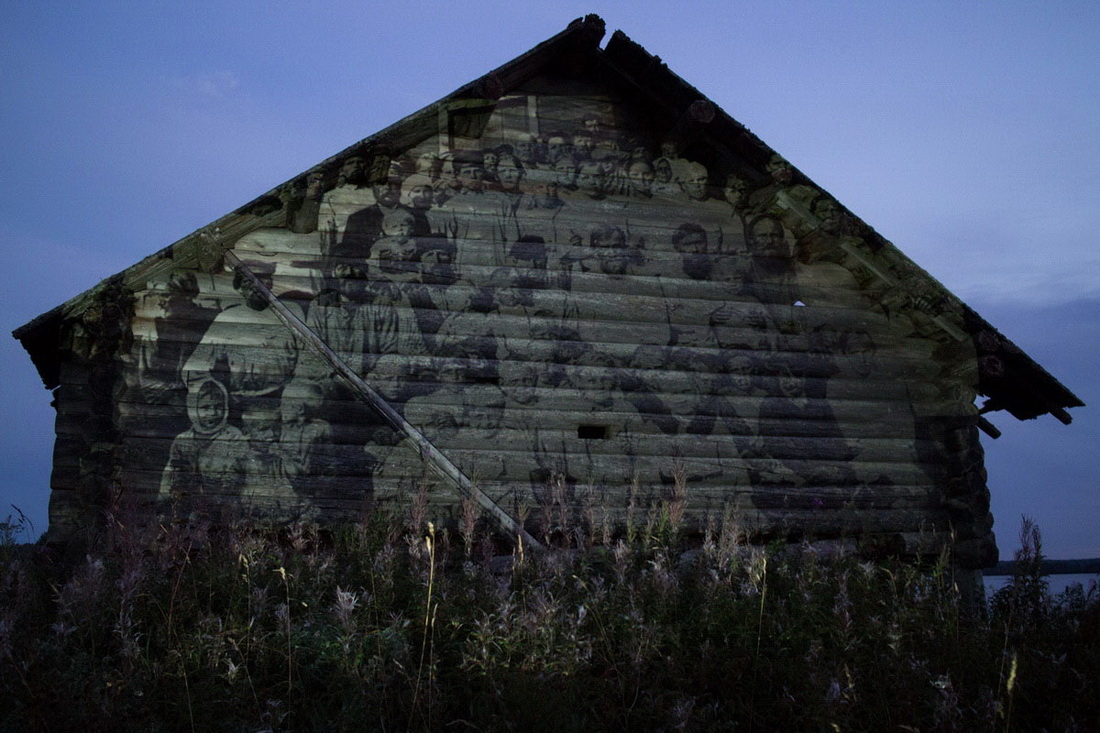Culture - NOMINEE: Evgeny Molodtsov
Evgeny Molodtsov
Vepsian forest
Support this photographer - share this work on Facebook.
In the last 3 years, I have made several long travels through the original centre of Vepsian settlements – the Vepsian forest, examining the abandoned villages. Vepsian assimilation was came largely because of the government policy in the Soviet Union period. During my journeys I was literally embedded in space and time, I “reformed” it by projecting archive photographs made in these places more than 100 years ago on the tumbledown log huts. I reached out to the Vepsian mythology, epic and rituals, was holding myself out as a Vepsian and tried to experience the folk hurt anew, retraced the path Vepsians left the forest. My intervention somehow echoed the government activity, it was repressive towards both me and the place. I was a person without any local belonging, desired to grab another's identity, history, pain of the Vepsians. What for? I believe that the association between someone and the territory is a necessary requirement to self-identification even in the age of the “tourists” community development.
About author:
I was born in Penza, spent all my childhood in the Tula region, studied in Moscow, in Italy and now I live in St. Petersburg. I can confidently classify myself as an ethnic Russian, but I can't call myself a Tulyak, a Penzenets, a Muscovite or a Petersburger. So I can't identify my affiliation with the local / regional identity group. Perhaps the reason is that my family lost contact with their native territory, its roots. For example, my grandfather and father were the militaries, which were distributed in the direction of military service. In Russian and Soviet history, there are many other reasons why people lose their connection and the binding to the native place, are forced to leave their city or village. There are numerous turning points in Russian history - the Civil and the Great Patriotic War, the repression, the big Soviet constructions, Rearrangement and etc. The facts of my biography influenced a lot on the formation of my art practice and the theme of my projects. Studying the identity through the deconstruction, appropriation and performative practices, I try to reach the self-identification and understand what it means to be a Russian or someone else.

